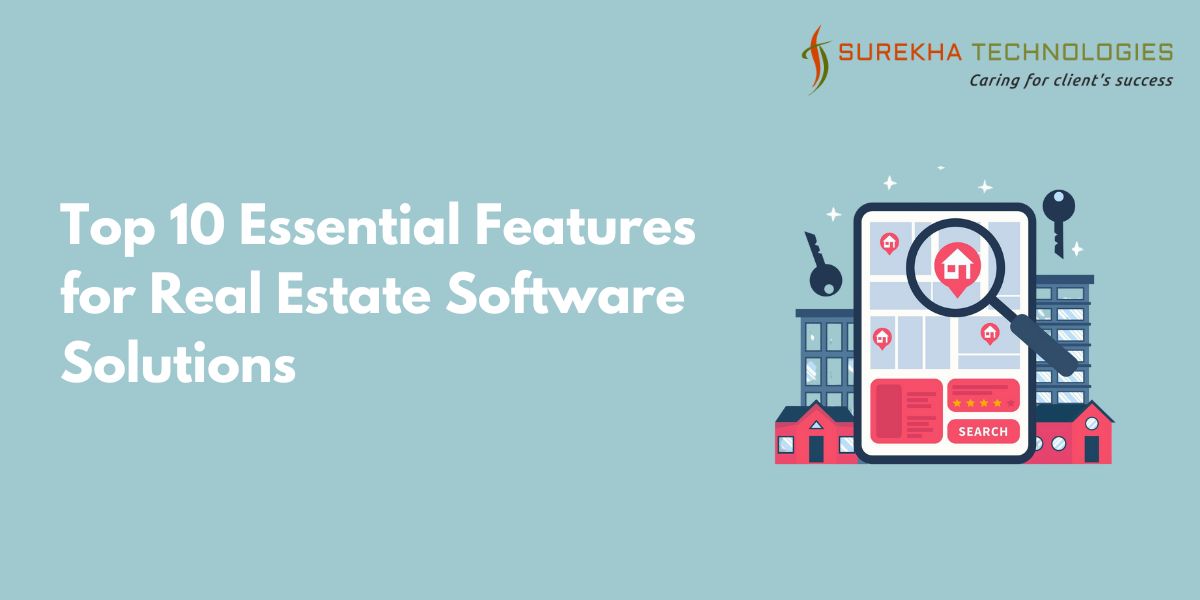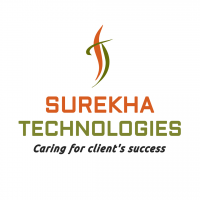Top 10 Essential Features for Real Estate Software Solutions

In the fast-paced world of real estate, technology has become a key enabler of efficiency, growth, and customer satisfaction. Real estate professionals rely on software solutions to manage complex tasks such as property listings, client relationships, transactions, and marketing efforts. Whether you are a real estate agent, broker, or developer, the right software solution can significantly streamline your operations. Here are the top 10 essential features that every real estate software solution should have to enhance productivity, improve client engagement, and drive business success.
1. Property Management System
An effective property management system is a core feature of real estate software. This tool allows businesses to manage properties, track occupancy, and monitor rental payments and maintenance requests. It should include features such as lease tracking, tenant communication, financial reporting, and property inspections. By automating routine tasks, a property management system saves time and reduces the likelihood of errors.
For real estate firms, this feature provides an organized view of available properties and helps streamline the management of both residential and commercial assets. With an easy-to-use interface, staff members can access important data, ensuring efficient management of properties and improved customer service.
2. Customer Relationship Management (CRM)
Real estate software must include a powerful Customer Relationship Management (CRM) tool. A good CRM helps manage interactions with clients, track leads, and store important client information. It helps real estate agents stay organized and ensures that no opportunity is missed. The CRM should allow for lead scoring, follow-up scheduling, and customer segmentation to target specific groups more effectively.
By integrating a CRM system, real estate businesses can deliver personalized experiences for their clients, enhance client engagement, and ultimately increase sales and referrals. This feature is essential for maintaining strong relationships with buyers, sellers, and tenants.
3. Advanced Search and Filtering Options
A user-friendly search functionality is essential in a real estate software solution. Prospective clients need to be able to search for properties based on various criteria such as price range, location, size, number of rooms, and other features. Advanced search and filtering options improve the client’s browsing experience and make it easier for agents to quickly find properties that meet the specific needs of their clients.
An intuitive search engine should also support saved searches, allowing users to receive notifications when new listings meet their requirements. This feature can significantly improve user engagement and conversion rates.
4. Listing and Advertising Management
Real estate professionals need tools to create and manage property listings across various platforms. Real estate software should allow agents to create detailed property listings that include high-quality photos, videos, floor plans, and descriptions. These listings should be easy to update and syndicate across multiple platforms such as MLS (Multiple Listing Services), Zillow, Realtor.com, and social media.
In addition, an integrated advertising tool can help market properties more effectively, whether through paid ads, social media campaigns, or email marketing. This ensures that listings reach the right audience, increasing visibility and improving the chances of a sale.
5. Mobile Access and Compatibility
In today’s mobile-first world, real estate professionals need the ability to access their software on the go. Whether they are at an open house, showing a property, or meeting a client, mobile access is critical for staying productive. A mobile-optimized version of the real estate software ensures that users can view property listings, update details, and communicate with clients from anywhere.
Moreover, mobile compatibility helps agents track leads, manage their calendars, and close deals faster, providing a competitive advantage in a fast-moving market.
6. Transaction Management
Managing transactions is a core responsibility in real estate, and having a transaction management system within your software solution is essential. This feature should support the entire lifecycle of a transaction, from the initial offer to the closing. It should allow users to track contracts, manage documentation, and collaborate with stakeholders such as attorneys, lenders, and clients.
Transaction management tools streamline the paperwork and minimize errors, ensuring smooth and secure closings. Automation of reminders, deadlines, and document requests further improves efficiency, reducing delays and improving the client experience.
7. Reporting and Analytics
Real estate software solutions should provide robust reporting and analytics capabilities. Real estate businesses need to track key metrics such as sales performance, marketing ROI, customer acquisition cost, and agent performance. Real-time dashboards can give managers a clear view of business performance and identify trends, helping them make informed decisions.
Reporting features should allow for custom reports based on specific needs, such as financial reports, market analysis, and sales forecasts. With data-driven insights, real estate professionals can optimize their strategies and make smarter business choices.
8. Cloud Integration and Data Security
Cloud-based real estate software solutions offer greater flexibility, scalability, and security compared to traditional on-premise software. Cloud integration ensures that data is accessible from anywhere and allows for easy updates and backups. It also enables collaboration among teams, even if they are geographically dispersed.
In addition, data security is a critical concern in real estate transactions. The software should have robust encryption, authentication protocols, and compliance with data protection regulations like GDPR or CCPA to safeguard client information and maintain trust.
9. E-Signature Integration
In today’s digital age, the ability to sign documents electronically is essential. Real estate software that integrates e-signature tools simplifies the closing process by allowing clients to sign contracts, leases, and other documents digitally. This feature eliminates the need for printing, scanning, and mailing, speeding up the transaction process and reducing paperwork.
E-signature integration provides convenience for both clients and agents, improving the overall experience and increasing operational efficiency.
10. Third-Party Integrations
Real estate businesses often rely on a variety of third-party tools and services to enhance their operations. From accounting software to email marketing platforms, the ability to integrate with external tools can provide significant benefits. A good real estate software solution should offer seamless integration with popular third-party services, including payment gateways, property valuation tools, and marketing platforms.
These integrations ensure that the real estate software acts as a central hub for all business activities, eliminating the need to juggle multiple tools and systems. By streamlining workflows, businesses can save time and reduce administrative overhead.
Conclusion
Real estate software solutions are essential for managing the complexities of the industry. By choosing a solution with the features outlined above, real estate professionals can streamline their operations, improve client satisfaction, and gain a competitive edge in the market. Whether you're managing properties, marketing listings, or closing deals, the right software will provide the tools you need to succeed.
Note: IndiBlogHub features both user-submitted and editorial content. We do not verify third-party contributions. Read our Disclaimer and Privacy Policyfor details.











